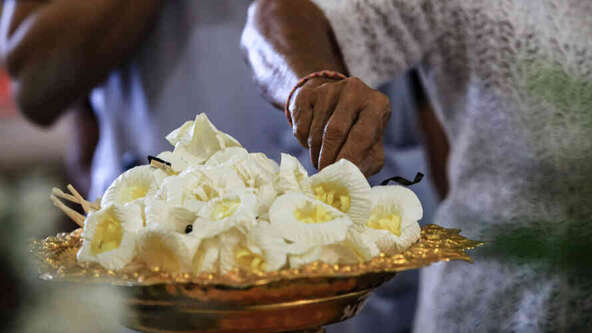How Different Religions Honor Their Lost Loved Ones

When we lose someone we love, the religious and cultural traditions we practice can bring us comfort and healing during a difficult time. While many of us are familiar with our own religious traditions surrounding death, we may not know how different faith traditions mark the passing of their community members. Below we have summarized how several religions understand and approach death and the rituals they have built to honor and support those they have lost. The information we have compiled is a broad take on religious customs and traditions, and is not meant to be instructional. If you are looking for guidance on how to comply with your own faith tradition, consider contacting your local clergy or religious leader to help guide you.
Hindu
Hindus believe the human body is composed of five elements: earth, water, fire, air, and void. Fire is the element that they use to communicate with the gods, and cremation is seen as the ultimate sacrifice that Hindus make. It is meant to be performed as soon after the death as possible, and is a participatory experience for the loved ones of the deceased. It is common for families to witness their loved one’s cremation, and even partake in the process of pressing the button that starts up the fire mechanism. Following cremation, the family does not pray or host rituals in the home for 12 days. It is believed that during the first nine days, the soul is confused and is still connected to the body; on the 10th day, it understands it is time to go. From the 10th to the 12th day, the family performs rituals to ease the path for the soul and then they celebrate with sweets on the 13th day, when the soul has moved one.
Judiasm
In the Jewish tradition, it is believed that the body is only borrowed, and in death, it is returned to God. Traditionally, Jewish members are buried, so their bodies can go back to their earth. Today, it is also common to cremate the dead. For the seven days following the passing the family partakes in shiva (Hebrew word for seven) where they refrain from participating in pleasurable things and make space for their grief. For the 30 days following the shiva, they are in shloshim (Hebrew word for thirty), where they slowly return to regular life while still mourning their lost loved one.
Islam
Before the death, when possible, the dying will pray the Shahada as their last words. Then, once they pass, their body is treated with great care and respect. The body is traditionally washed and cared for by the family. Today, this can still be done by the family, but many practicing Muslims instead choose to have health care or funeral professionals perform the ritualistic cleaning. The body is then wrapped in a shroud with three clean, white cloths without any seams or knots. Once buried, the body is positioned to face Mecca.
Buddhism
Buddhists believe the body is simply a vessel for an eternal soul that is constantly reborn and seeking enlightenment. When someone dies, there is a powa, or ceremony to transfer consciousness. It is a sacred practice where loved ones pray that the dead will have a positive rebirth following their passing. This ceremony is open to all, and people who have recently lost someone are welcomed to hold space for those who have recently died in their families. At the ceremony they make offerings to the Buddhas of beautiful designs, treats, candles, and more. The ritual can also be held for someone who is approaching death.
Catholicism
Catholics commonly believe that death marks the passing from the physical world to an afterlife in heaven, hell, or purgatory. Prior to the passing, when possible, a Catholic priest is brought in to administer special rites to the person. Following the passing, there is traditionally a funeral mass held by a priest or clergy member where the family and loved ones of the defeased gather to pray and remember their life.